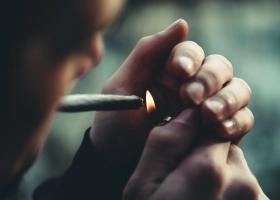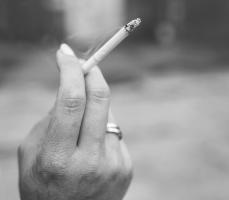Energy drink addiction: can they get us 'hooked'?
Energy drinks have become, in a relatively short time, a true social phenomenon.
Today some brands of products of this type have powerful marketing campaigns and a iconography that is part of popular culture, and is especially attractive to the population young.
But unfortunately, the use of these products carries a number of risks and harmful health effects to be aware of. Y This set of risks includes those that have to do with the way in which energy drinks are used and the habits associated with them.. And it is that some people can come to generate a relationship of dependency with them, that although It cannot be as powerful as that caused by hard drugs, it can be a problem.
- Related article: "The 14 most important types of addictions"
Is it possible to develop an addiction to energy drinks?
We all know, even from hearsay, the existence of addictions to illegal “hard drugs”, such as cocaine or heroin, as well as alcohol. However, the problems based on dependence are not limited to the consumption of these substances: in First, because there are also non-substance addictions, such as gambling; and secondly, because it is also possible to "get hooked" on other substances.
Energy drinks are an example of products whose consumption is highly normalized and which, however, can lead to a Dependence problem because, among other things, they contain certain substances that interact directly with our brain.
For example, Taurine, widely used in popular energy drinks and which can be present at a rate of 1000 or 2000 milligrams per serving, crosses the blood-brain barrier (the "filter" that separates the brain from the substances that circulate in the blood vessels in he) and interacts with neurons, influencing the psychological and physiological processes of various ways. While this is a substance found in a large number of healthy foods, the high concentration of it in certain beverages is associated with significant health problems.
Something similar happens with caffeine. It is a somewhat "natural" psychostimulant, however, it is incorporated in large amounts in many energy drinks, and it also has effects on the human mind. Although in practice it is not possible to die of poisoning by this substance simply by obtaining it from drinks, may lead us to internalize dysfunctional behavior patterns in our relationship with these products and its use.
It must be taken into account that these molecules do not have the capacity to generate "chemical addictions" that they do have substances such as codeine or nicotine. That means that when consuming energy drinks, their elements that interact with the brain do not make the neurons start to work in a way that leads us to need increasing amounts of these substances so that we do not feel too wrong.
That is why technically, the tendency to want to be constantly consuming energy drinks is not, technically, an addiction, but rather a dependency problem in which the neurological has a role, but is less relevant than psychological. That is to say, by "hooking" ourselves on these drinks we are internalizing a series of behavior patterns and habits that lead us not to wanting to get rid of them (and the consumption of drinks with which they are associated) and in which it has to see how drinking those makes us feel soft drinks, but our brain does not undergo a radical transformation after relatively few drinks, as it does in the chemical addictions.
How is dependence on this type of drink reflected?
These are some of the ways that being "hooked" on energy drinks can manifest itself.
1. A dependency as a ritual
Some people develop a kind of superstition with energy drinks: they feel bad if they can't count on them, since they are supposed to give them an "extra" in the face of day-to-day challenges (or so they think).
2. A way to manage anxiety and general discomfort
Some people turn to these drinks when they feel stressed or anxious, because They associate their taste with the breaks they take to rest, and at the same time it gives them an excuse to stop exposing themselves to or focus on what makes them feel bad: it is a method of escaping from reality.
- You may be interested in: "Types of Anxiety Disorders and their characteristics"
3. The pressure of context
Do not forget that dependency and addiction problems often have a good part of their causes in the social context to which the person is exposed. If we are used to socializing with people who spend a lot of time drinking, the simple fact of not having a can or a glass in hand in situations like this can cause discomfort.
Looking for addiction therapy?
If you are looking for a team of professionals who offer treatment to overcome addictions with all the guarantees, get in touch with us. On CITA Clinics We specialize in medical and psychotherapeutic assistance services for people who suffer from addiction dependency problems, with or without substances. In addition, we offer the possibility of entering our fully equipped residential module, located in a natural environment in the Barcelona area.
Bibliographic references:
- American Psychiatric Association (APA). (2013). Diagnostic and statistical manual of mental disorders (5th ed.). Arlington, VA: American Psychiatric Publishing.
- Banerjee, S.P. et.al. (2013). Neuropsychopharmacological actions of taurine. Advances in Experimental Medicine and Biology, 775: pp. 3 - 18.
- Curran, C.P. & Marczinski, C.A. (2018). Taurine, Caffeine, and Energy Drinks: Reviewing the Risks to the Adolescent Brain. Birth Defects Research, 109 (20): pp. 1640 - 1648.
- Griffiths, R. R., Evans, S. M., Heishman, S. J., Preston, K. L., Sannerud, C. A., Wolf, B., & Woodson, P. P. (1990). Low-dose caffeine discrimination in humans. Journal of Pharmacology and Experimental Therapeutics, 252 (3), 970-978.
- Kalivas, P.W.; Volkow, N.D. (2005). The neural basis of addiction: a pathology of motivation and choice. The American Journal of Psychiatry, 162 (8): pp. 1403 - 1413.
- Rao, A., Hu, H., & Nobre, A. C. (2005). The effects of combined caffeine and glucose drinks on attention in the human brain. Nutritional Neuroscience, 8 (3), 141-153.
- Salazar, M.; Peralta, C.; Pastor, J. (2006). Manual of Psychopharmacology. Madrid, Editorial Médica Panamericana.



